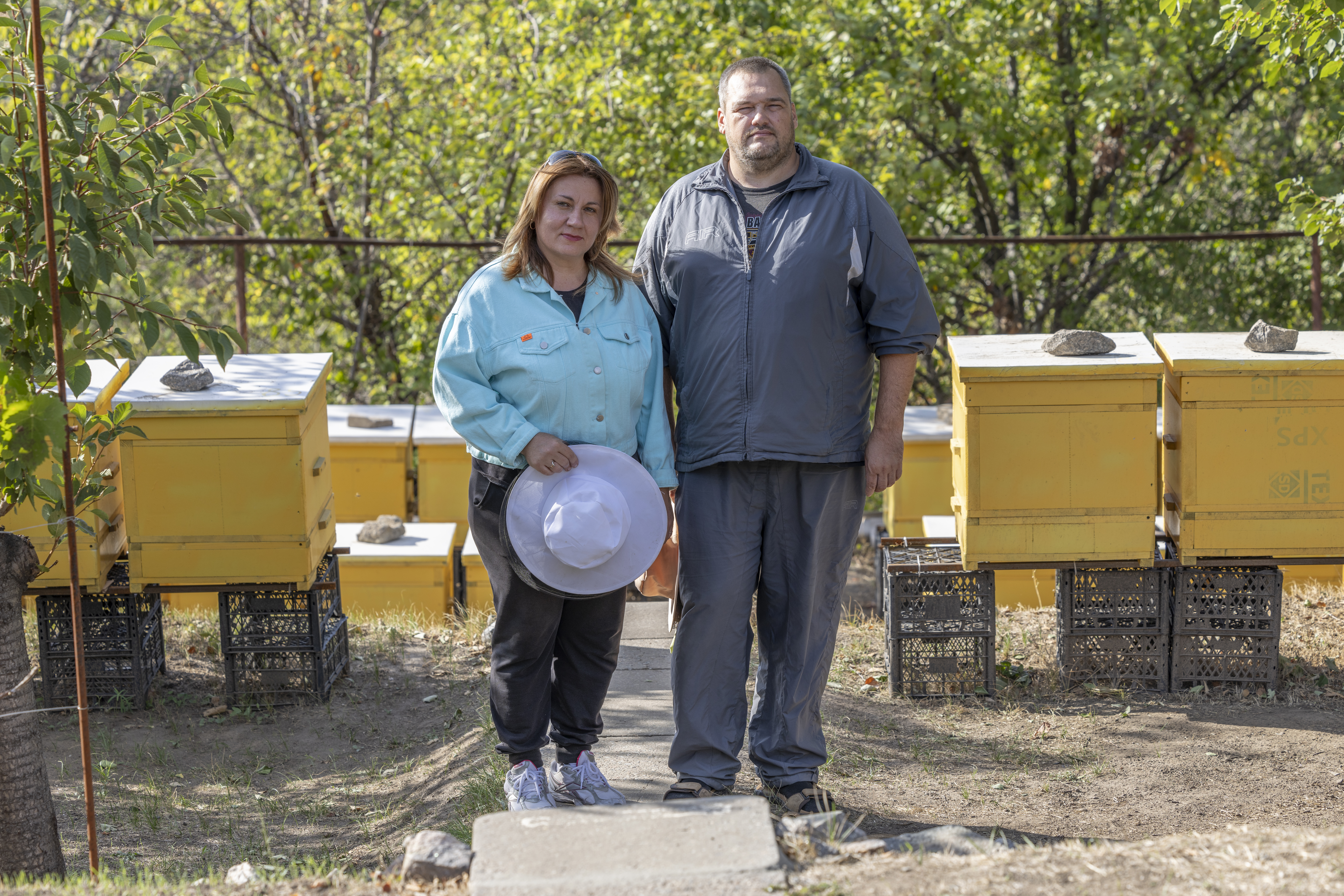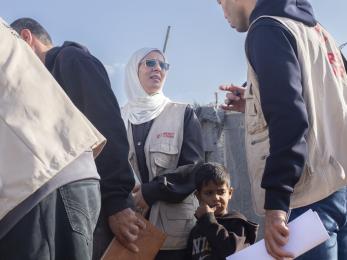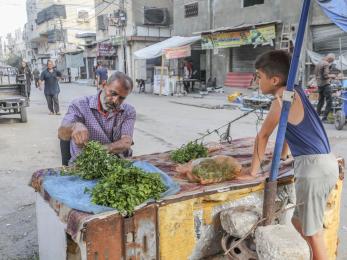8 months after Hurricane Maria, another hurricane season looms in Puerto Rico
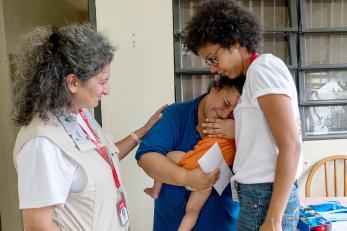
Karla Peña, resilience program manager for Mercy Corps Puerto Rico, has a master’s degree in planning and has been working in community development, social and educational projects in Puerto Rico for more than 10 years. Karla joined Mercy Corps’s emergency response efforts in October 2017, weeks after Hurricane Maria landed in Puerto Rico.
Another hurricane season is upon us in Puerto Rico. Families are preparing for storms like never before — while still recovering from Hurricane Maria. Their ability to build resilience is more critical than ever, and we’re working with communities throughout the island to help.
The day before Hurricane Maria my family and I temporarily moved from our 5th floor apartment to shelter in a concrete home, a hardy and safe space owned by a close family member. Even in a secure home, during the storm I felt the danger, that feeling of a possibility of losing everything.
The capacity and the impact of this hurricane was something we had never felt before. My family and I did not suffer major loss, but for many families in Puerto Rico the situation was way different — and worse. Puerto Ricans were prepared, but not for the long duration and the level of the emergency caused by Maria.
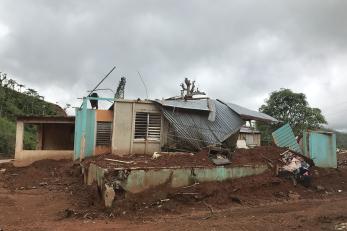
Before Hurricane Maria, Puerto Rico was already suffering a noteworthy economic and political crisis. Hurricane Maria intensified this crisis and added new issues like the loss of crops, the complete collapse of the island’s main and only power grid, and the loss of communications and other critical needs. Every family in Puerto Rico was impacted.
But they could also turn to one another for support. Neighbors and community members helped each other create empathetic and supportive systems in their communities.
My parents live in Gurabo, a town on the east side of the island. After the hurricane, all neighbors gathered at their house for one big meal every day for months until the power was back on. For some, that was their only meal of the day. The neighbors had quality time to share their feelings and together try to find solutions for each challenge they faced. After dinner, they all stayed together and played “dominos,” a table game well known in Puerto Rico.
This same story repeats and repeats through every single community in Puerto Rico after Hurricane Maria. Every community I have visited, and every community member that I had the opportunity to talk to tells me the same. Kids meeting other kids for the very first time in their community, people sharing the use of a generator and a fridge, families taking care of elderly neighbors and taking in entire other families, women and men making sure all neighbors were fed and had a safe shelter — but most importantly building empathy and creating a support system among them that got them through those very first days after the catastrophe.
Preparing local communities for emergencies
With this latest hurricane season, communities will have to come together again. Supporting local communities’ preparations is key to saving lives. That’s why we’re working with local community-based organizations as we prepare for another hurricane season.
Mercy Corps landed in Puerto Rico shortly after Hurricane Maria. Our team, in collaboration with local community organizations, managed and executed an emergency response plan and supported 5,000 families island-wide. For 3 months after the emergency, Mercy Corps distributed meals, cash, solar lanterns and water filters to families in need.
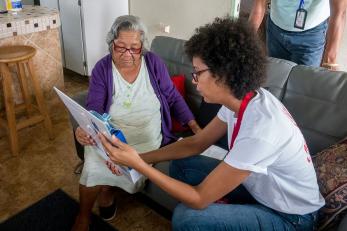
With another hurricane season on the horizon, this year the team shifted efforts to support recovery. Now we’re supporting community centers and community organizations that responded during the last emergency. We’ve developed a resilience program for them to gain and use new disaster response and recovery information and skills and equipment — like satellite phones — that will improve their preparedness and their emergency response plan. We’re calling these locations “resilience hubs.”
We tailor our work in every community based on their members’ experience and expertise. This work includes the development of community farming projects and installation and handover of clear water and energy off grid systems, among other programming. These community farming projects provide a shared space available to farmers and other community members, which builds resilience and helps the local economy. They also provide people with additional income because they can sell the extra produce among the community members or at local markets.
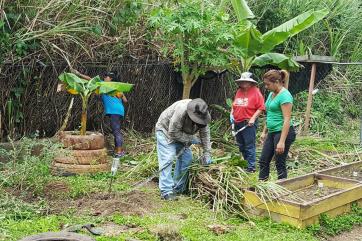
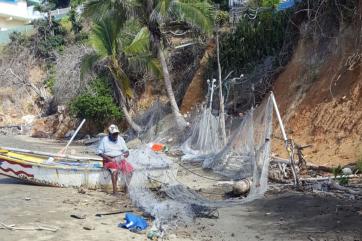
We are also supporting 500 small farmers, fishermen and women, and beekeepers recover and get their livelihoods back on track. Small farmers were severely affected after the hurricane — they lost their crops and their income and are now dealing with harsh damage to ecological cycles and natural resources. We’re providing them with resilience training, seeds, organic fertilizers, seedlings, fishing materials, beekeeping supplies and support to access local markets.
The stress and trauma of Hurricane Maria is still fresh for a lot of Puerto Ricans, but more hurricanes will soon head our way. Not everyone has received support to overcome the disaster and prepare for what is coming.
Every day, with many community members island-wide, I sense their stress and discomfort. People feel that even a storm not as powerful as Hurricane Maria can take us back to day 1 because of the vulnerable situation communities are in.
Time is running out. Sharing disaster risk reduction strategies and recommendations for how to respond to upcoming storms will comfort and better prepare many families in Puerto Rico. Mercy Corps is needed more than ever to help people develop the skills they need to prepare for the next storm.
